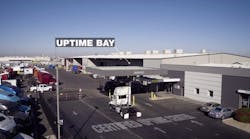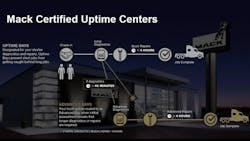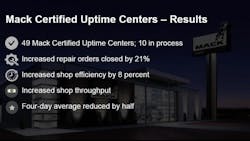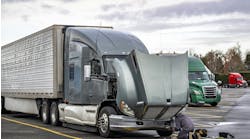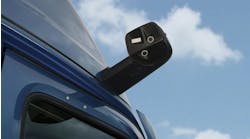Get you in, get you out: Mack targets quicker repairs, more uptime
For a number of repairs on your trucks that take about 3.5 hrs. actual time with a technician but cost businesses an industry average of four days of vehicle downtime, Mack's got a solution the company says can cut that downtime in half.
"Unplanned downtime costs more to a customer than fuel economy," says David Pardue, vice president of connected vehicle and uptime services at Mack. "We talk about fuel economy being important, and it is, but the cost of an unplanned repair can be astronomical to a customer," he adds, especially if you also have to factor in failure to deliver a load.
The solution Mack has come up with is essentially triage for trucks via Mack Certified Uptime Centers, and 49 dealers across the country have now earned that certification; another 10 are in process. Pardue notes it takes an average of two months for a dealership to make cultural and operational changes away from traditional "first in, first out" repair mentality and get certified as one of the new centers.
"This is a process, not a program," Pardue says. "We have what we consider the industry-leading approach to uptime services."
There are more than 45,000 Mack trucks with connected vehicle technology on the road, according to the company. The process Pardue describes taps Mack's GuardDog Connect system to continually monitor the trucks. When a fault code comes up, the company's OneCall center in Greensboro, NC and ASIST diagnostics come into play, identifying known problems and what repairs will be necessary.
"We utilize technology and we have pre-engineered, if you will, repairs on known faults," Pardue explains. "We capture the data in real time from the vehicle, and we package that and deliver it to the provider to do the service.
"So we eliminate much of those extra costs that impact our customers' operations, helping them boost their bottom line," he continues. "We have seen where we can be more proactive around vehicle data."
Mack has identified downtime as a leading problem fleets and trucking companies face. Unplanned downtime can cost some $2,000 per day/per event, and Mack says the new approach is producing some promising results: 70% less diagnostic time and increased throughput at service providers, with 21% more repair orders closed.
The Certified Uptime Centers have a dedicated maintenance bay to handle the list of faster repairs, according to Mack, but if the diagnostics process identifies a more complicated problem, the truck is sent to an advanced repair bay and a master technician will handle it. In the case of a longer, more involved repair, the company's leasing/rental organization can return the driver to service in the meantime.
"We turn technology from the vehicle into actionable information to our customer," says Pardue. "What is the criticality of repair? Can you continue to deliver the load? Or do you need to stop the vehicle to prevent further damage, and we can arrange a repair with a local dealer?
"This is about getting vehicles into and out of our dealers quicker and back on the road," he emphasizes.
